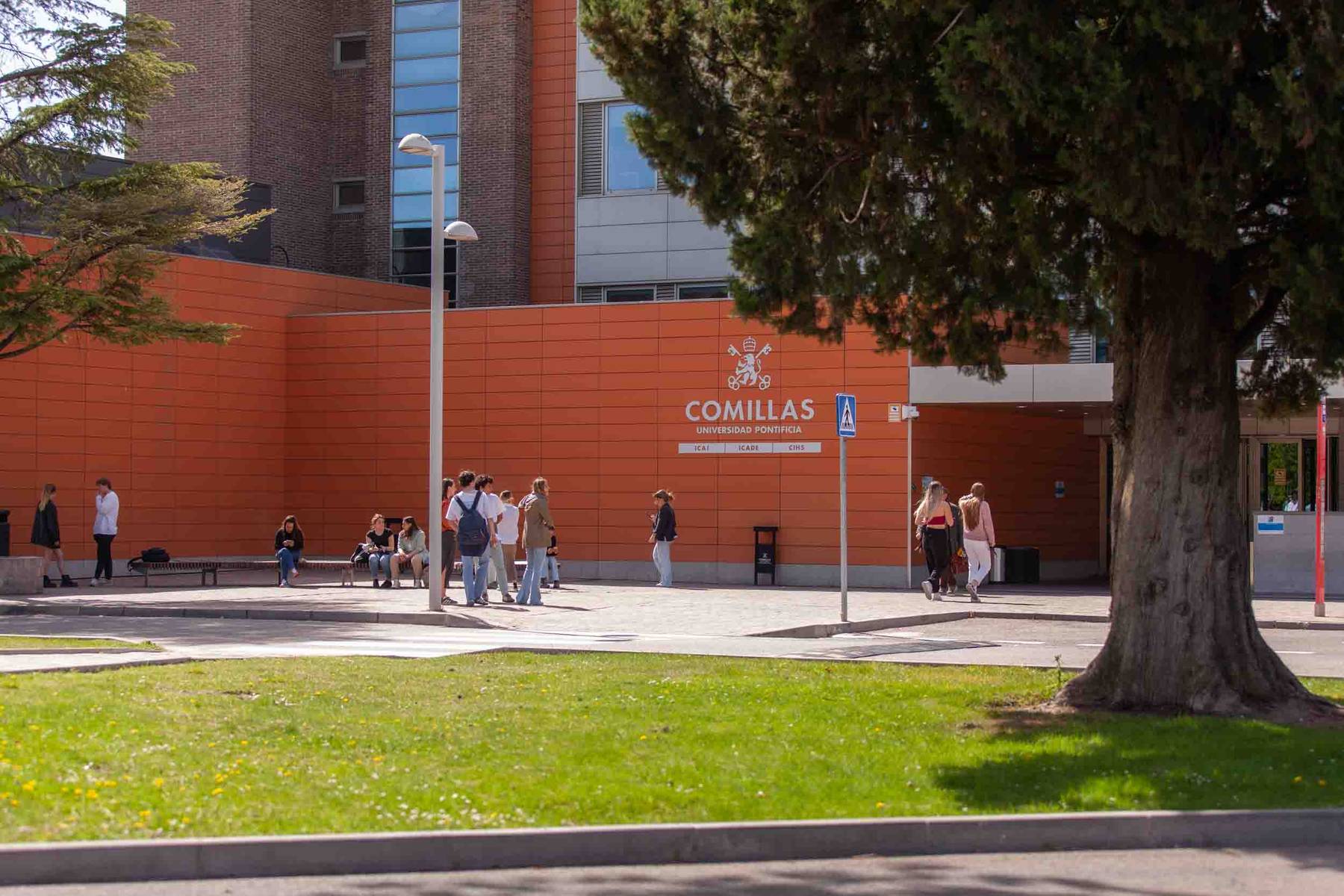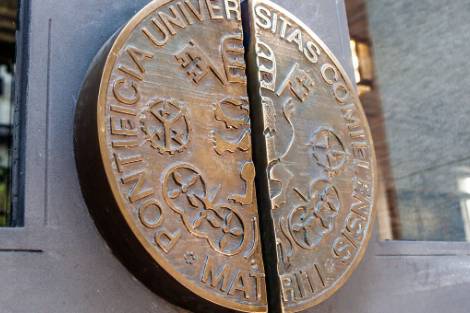Doctoral Program in Individual, Family and Society: A Multidisciplinary Vision
It allows the development of research activity in different fields and topics of the social sciences.

What does this doctorate consist of?
The PhD Program in Individual, Family and Society: an interdisciplinary vision is aimed at people interested in research and the acquisition of advanced knowledge on the most pressing current issues and problems affecting individuals, families, communication and the current social context, as well as the interaction between all these dimensions, with a multidisciplinary approach).
It provides doctoral students with a global and interdisciplinary framework of knowledge to facilitate the development of their research activity in different areas and topics in the social sciences.
The University maintains educational collaboration agreements that allow for exchanges and research stays.
Our program has a renowned teaching staff with extensive national and international research experience, as well as an extensive network of collaboration agreements with public and private institutions, universities and research institutes around the world.
- You can study this program with the International Mention.
- The program can also be taken as an Industrial Doctorate.
- CentersEscuela Internacional de Doctorado
- LanguagesSpanish
- CertificationDoctorates
- ModalityIn-Person
- Duration4 years full time and 7 years part time
- Seats25
Any questions?
What makes us different?
Research groups
Number of funded research groups
Research projects
Number of research projects funded
Research centres
Don't miss a date
Academic calendar
In this CALENDAR you will be able to check the required Training Activities, Training Complements and Research Seminars, as well as other key events.
The following guide shows the detailed steps that students must follow to register the activities that they carry out during their Doctoral studies: Guide to Managing Doctoral Activities for the Student.
The designated Tutor will advise Doctoral students individually on their enrollment by indicating which Training Activities should be carried out in accordance with the area of dedication/specialization in professional activities.
The training activities offered in the program are intended to guarantee the acquisition of research skills by Doctoral students. In the event that the Doctoral student has previous experience in research activities, the academic recognition of this experience can be considered, along with the adjustment of the training activities to the student´s profile, after receiving the authorization of the Academic Committee. The training activities are of two types: transversal (for all Doctoral students in the Doctoral School) and specific (specific to each Program).
The training activities in the Doctoral Program are detailed below.
The Doctoral student may not need to take any complementary training courses, or may need to take one or several courses. The decision is made by the Academic Committee after the interview for admission and assessment of the documents provided.
Profile 1:
Applicants with a Master's Degree of a fundamentally professional nature and with little methodological training will have to take up to 21 ECTS credits in Complementary Training Courses focusing on the following contents:
Profile 2:
Applicants with a Master's Degree of a fundamentally professional nature, specially orientated to the carrying out of a Doctoral thesis project of a legal nature, will have to take up to 21 ECTS credits in Complementary Training Courses focusing on the following contents:
Profile 3:
Applicants who, in their studies have not taken subjects oriented to data analysis, in addition to the above Complementary Training Courses, must complete 9 ECTS credits focusing on:
Interdisciplinary vision oriented to research with social impact
Everything you need to know
Faculty
Quality and regulations
DOCTORAL GUIDES
- Quick Guide to the Doctorate at Comillas
- Guide to good practice for the direction of doctoral theses at Comillas Pontifical University
ACADEMIC REGULATIONS
- Doctoral Regulations (please take into account the Transitory Provision depending on the time of commencement of studies and the previous Doctoral Regulations, available at these links: 2023 and former).
OTHER REGULATIONS
- RD 99/2011, which regulates official doctoral studies (consolidated text with subsequent modifications)
Information for students
For this doctorate
The program's lines of research are as follows:
- Social problems, intervention and social policy.
- Educational innovation and teaching-learning processes: history, current affairs and prospects.
- Clinical and health psychology.
- Family, protection and development.
- Interlinguistic and intercultural analysis.
Faculty by lines of research

Our alumni
Carlos López Cavada
Doing my PhD at Comillas has been an experience to treasure. For the professional quality of the lecturers, as well as for the personal contact with each of the people I have had to deal with. The learning experience is undeniable and I would go back and repeat it even with the size of the project.
Mar Zulueta
Of the PhD programme I would highlight the added value of its multidisciplinary approach, sharing knowledge and experiences that allow you to have a global and more human vision of reality, together with the dedication and commitment of each of the professors who are part of it.
Carlos Hernández
The fundamental advantage of this programme is precisely its interdisciplinary approach. Sometimes we approach the doctorate thinking that its focus has to be from a single discipline and this programme opens up a range of possibilities that allow the researcher to grow and discover new fields and people with whom to collaborate.
Ángela Ordóñez
One of the things that helped me the most in the PhD was the bibliographic management workshop, organised by the library team for all the students in our programme.
It may be of interest to you....

Comillas CIHS
Cantoblanco Campus.
Since its foundation, the Faculties of Human and Social Sciences, Theology and Canon Law at Comillas Pontifical University have had the vocation to promote humanism and plurality.
It is defined by its desire to train people capable of taking thought and ideas to the highest levels, and to give them the necessary skills to be useful and improve life in the complex world in which we live.
Q&A
A maximum of four years, full-time, and seven years, part-time, from admission to the program until the application for submission of the doctoral thesis is made.
No, you can defend your thesis at any time if it is admitted for defence, but you should note that the minimum tuition fees are three years full-time and five years part-time.
Initially, it is advisable to contact the program coordinator to assess the possible line of research and thesis supervisor. Afterwards, you will have to register in the admissions portal and upload the necessary documentation. Depending on the program, this documentation may vary, please read carefully the information note of the selected program where the required documents are detailed.

Contact
PhD Coordinator:
María Prieto Ursúa
mprieto@comillas.edu
Academic Committee: You can consult the composition of the Academic Committee at the following link
Information points:
Faculty of Human and Social Sciences
Teresa Codina
tcodina@comillas.edu
C/ Universidad Comillas, 3
28049 - Madrid
Tel. +34 91 734 39 50 - Ext: 2512





